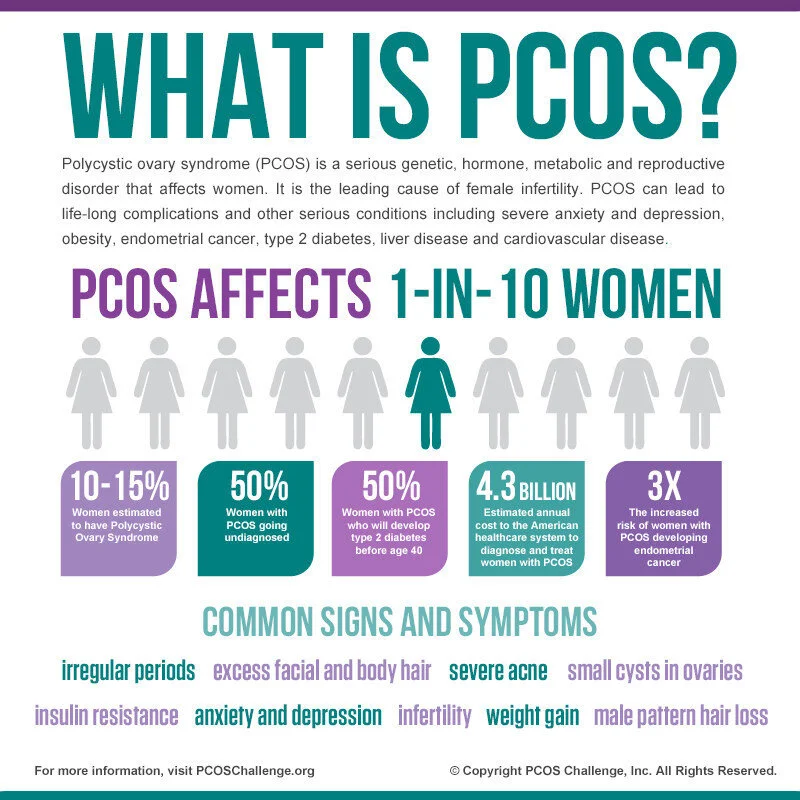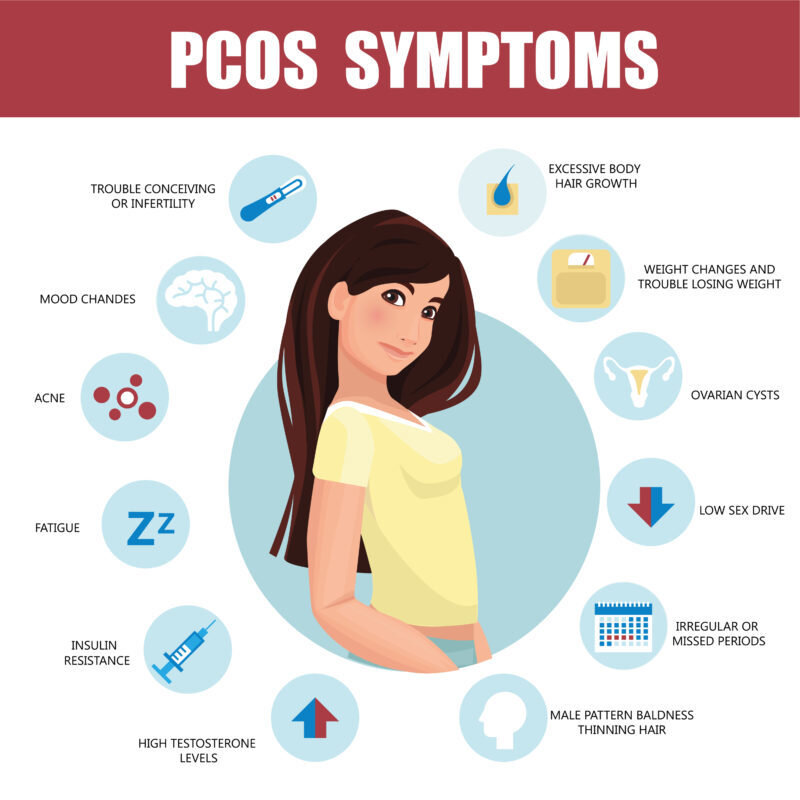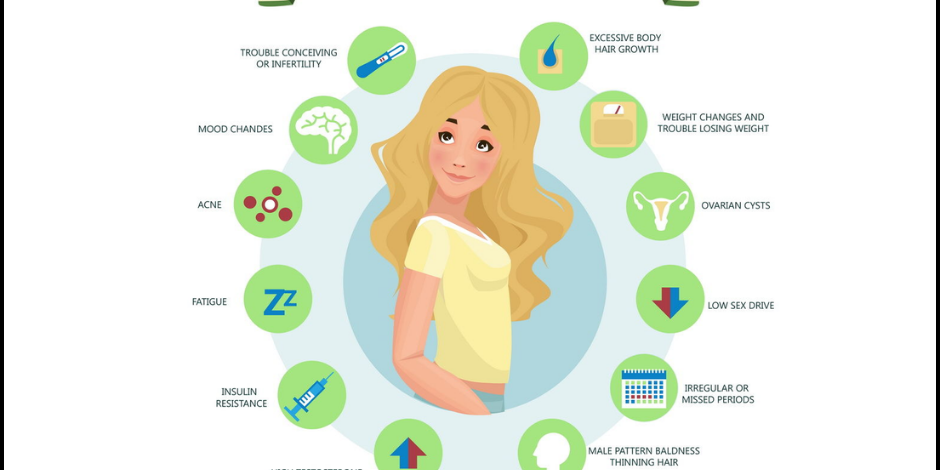
Polycystic ovary syndrome (or polycystic ovarian syndrome, or PCOS) is a complex hormonal condition. ‘Polycystic’ literally translates as’many cysts’. This really refers to there being many partially formed follicles on the ovaries, which each contain an egg. These rarely grow to maturity or produce eggs that can be fertilised.
Women with PCOS commonly have high levels of insulin, or male hormones known as ‘androgens’, or both. The cause of this is unclear, but insulin resistance is thought to be the key problem driving this syndrome.
In some women, PCOS runs in the family, whereas for others, the condition only occurs when they are overweight.
PCOS is relatively common, especially in infertile women. It affects 12 to 18 percent of women of reproductive age (between late adolescence and menopause). Almost 70 percent of these cases remain undiagnosed.
Up to a third of women may have polycystic ovaries seen on an ultrasound, but they do not all have PCOS. To be diagnosed with PCOS, women need to have polycystic ovaries or the typical symptoms described below.

Women who have PCOS may experience:
-
irregular menstrual cycles: menstruation may be less or more frequent due to less frequent ovulation (release of an egg)
-
amenorrhoea (no periods): some women with PCOS do not menstruate, in some cases for many years
-
excessive facial or body hair growth (or both)
-
acne
-
scalp hair loss
-
reduced fertility (difficulty in becoming pregnant)—related to less frequent or absent ovulation
-
mood changes, including anxiety and depression
-
obesity
-
sleep apnoea.
Treatment of PCOS

It is important that all the symptoms of PCOS are addressed and managed long-term to avoid associated health problems. PCOS is a long-term condition, and long-term management is needed.
Depending on the symptoms you experience, management of PCOS can include:
-
lifestyle modifications: increasing your physical activity levels and eating a healthy diet can both help to manage PCOS
-
weight reduction: research has shown that even five to 10 per cent weight loss can provide significant health benefits
-
medical treatment—with hormones or medications.







